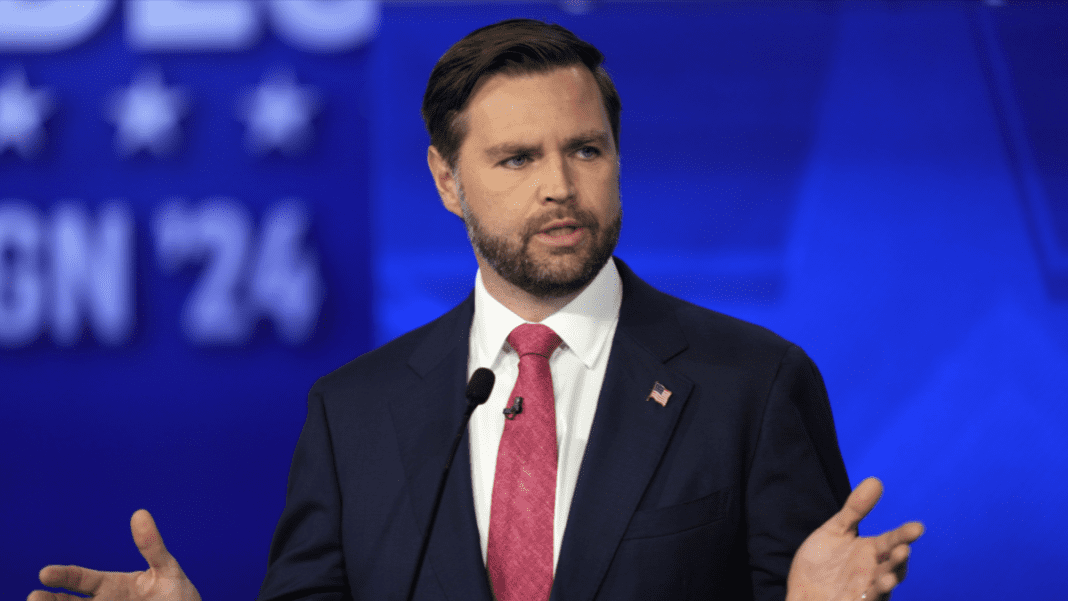Vice President JD Vance has come under heavy criticism after defending young Republicans who were caught using racist and hateful language online. The controversy began when leaked group chats revealed several rising GOP figures, including William Hendrix and Peter Giunta, making racial slurs, joking about violence, and even expressing admiration for Hitler.
The group in question was not made up of teenagers. Many of its members held leadership roles in the Young Republican National Federation, which includes people up to 40 years old. Hendrix is 25, Giunta is 31, and both were in positions of political responsibility. Despite this, Vance called them “kids” and said their lives should not be ruined over “old messages”.
This was not the first time Vance defended someone accused of racism. Earlier this year, he backed Marko Elez, a 25-year-old staffer fired for posting racist and pro-eugenics comments online. Vance again claimed that young people should not be punished for “mistakes”. His repeated defense of such behavior has raised questions about how seriously his party takes issues of hate speech and accountability.
Critics say Vance’s response reflects a culture where bigotry and extremism are no longer disqualifying. Supporters, however, claim he is standing up against what they call “cancel culture.” The clash highlights the growing divide over how far political leaders should go in excusing or condemning offensive speech among their allies.
Vance accuses Democrats of shutting down America to protect AOC’s political power
Trump’s Influence and the “No Apologies” Culture
Observers note that Vance’s reaction fits a political pattern made famous by Donald Trump—never apologize, double down, and attack critics. During his presidency, Trump gained support by rejecting traditional norms, showing open hostility toward opponents, and refusing to back down even when his remarks sparked outrage. He insulted figures like Megyn Kelly and John McCain, creating media firestorms that often strengthened his standing with supporters.
Vance appears to be following that model. His refusal to condemn racist remarks and his defense of offenders are seen as attempts to project strength and loyalty to the party base. In doing so, he signals that standing firm matters more than showing remorse.
Writers such as Andrew Egger and Alex Pareene have noted that this attitude reflects a deeper transformation within conservative politics. The old rules that demanded accountability or decency are giving way to a new standard where defiance is admired. The result, they argue, is a generation of young conservatives who view cruelty and provocation as paths to power.
The Changing Face of the Republican Movement
The recent scandals involving young Republican leaders highlight a broader trend that began even before Trump’s rise. The far-right rally in Charlottesville in 2017, which turned deadly, included several former College Republican leaders—showing that extremist ideas had already spread through parts of the movement. Trump’s arrival only accelerated this process by making open hostility and hate speech more visible and less politically costly.
“‘Next Grift?’ Gavin Newsom’s Brutal Swipe at Eric Trump Ignites Political Firestorm”
Now, under figures like JD Vance, this attitude appears to have become normalized. Vance’s willingness to defend adults using racial slurs or making violent jokes demonstrates how the line between youthful ignorance and deliberate extremism has blurred. His critics argue that such tolerance sends a dangerous message to the next generation of political leaders.
Many analysts believe Vance is positioning himself for a future presidential run, and defending controversial allies helps him maintain loyalty among Trump’s base. However, it also exposes a troubling reality—Trumpism no longer depends on Trump himself. It has evolved into a political identity defined by grievance, defiance, and a refusal to apologize.
The contents of the leaked chats, filled with racist language and praise for Hitler, are shocking to many Americans. Yet within parts of the MAGA movement, such revelations no longer lead to public shame or removal from positions of influence. Instead, they are often brushed off as overreactions or attempts to silence conservative voices.
JD Vance’s handling of this controversy shows how deeply Trump’s political style has shaped his successors. Even without Trump at the center, his influence lingers in the way today’s Republican leaders respond to scandal—with anger, denial, and unwavering loyalty to their own.
